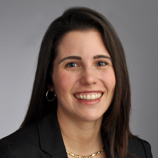Pro Bono Victories
February 2023
“As a nonprofit, every single dollar that we raise is almost always allotted to programs, supplies, support, benefits. There really aren’t additional funds that organizations and nonprofits like ours have when we potentially face an unfortunate [legal] situation […] For us it’s good to know that there is an organization like yours out there, seeking to support people that are trying to do good things.” – Al Vega, Interim President, MassCOSH
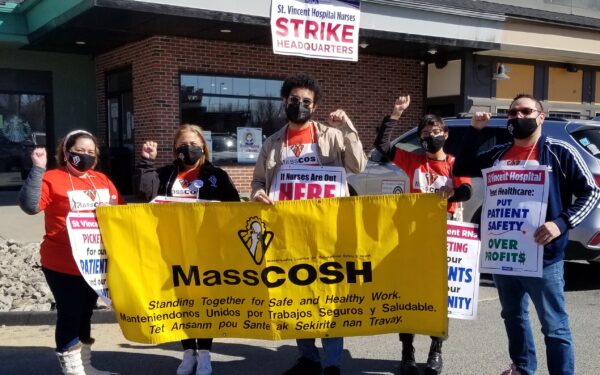 After Al Vega and his colleagues at the Massachusetts Coalition for Occupational Safety and Health (MassCOSH) moved to a new office building in the summer of 2021, they received notice from their former landlord that he was keeping their security deposit due to what he considered excessive wear and tear in the old space. The landlord also claimed that the repairs and removal of furniture and other items necessitated nearly $10,000 in additional fees.
After Al Vega and his colleagues at the Massachusetts Coalition for Occupational Safety and Health (MassCOSH) moved to a new office building in the summer of 2021, they received notice from their former landlord that he was keeping their security deposit due to what he considered excessive wear and tear in the old space. The landlord also claimed that the repairs and removal of furniture and other items necessitated nearly $10,000 in additional fees.
A few months later, MassCOSH received notice that the landlord had filed in small claims court, and in the summer of 2022 they were subsequently summoned to attend a virtual small claims trial scheduled for the fall.
Al and the rest of the MassCOSH team felt strongly that none of the landlord’s claims had merit. They argued that they had left the former space in normal condition, and even compiled a spreadsheet extensively documenting their rebuttals to each of the landlord’s assertions.
As the trial date approached, MassCOSH reached out to the Clearinghouse seeking legal advice. They wanted to know more about their options for mediation, settlement, and representation were the case to proceed.
Through the Clearinghouse’s Legal Referral Program, MassCOSH was connected with volunteer attorneys Daniel Curran and Thomas Hayman, of Nelson Mullins, who helped them review the landlord’s claims, assess the evidence and documents MassCOSH had compiled, and come up with a plan of action.
Dan and Tom then drafted a letter to the former landlord outlining the matter at hand and encouraging him to settle due to the overwhelming evidence in favor of MassCOSH. Following a round of negotiations with Tom, the landlord ultimately agreed to keep the security deposit but withdraw his demand for further payment.
Thanks to the dedicated assistance from Dan and Tom, the team at MassCOSH has been able to settle comfortably into their new office space and focus on their vital mission to support workers, advocate for labor rights, and address unsafe working conditions.
April 2021
“It would have been impossible for Marie* to do this by herself; there are so many roadblocks put in front of people […] When somebody is dealing with homelessness and trying to figure out where their next meal is coming from, any additional issues can be so overwhelming. To be able to help is wonderful.” – Lynne Stewart, Paralegal, Nolan Sheehan Patten LLP
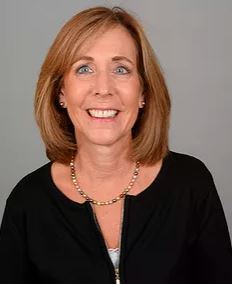 Lynne Stewart, a paralegal at Nolan Sheehan Patten, first met Marie* in the spring of 2017 at one of the Clearinghouse’s Legal Clinics for the Homeless at the Boston-based youth shelter Bridge.
Lynne Stewart, a paralegal at Nolan Sheehan Patten, first met Marie* in the spring of 2017 at one of the Clearinghouse’s Legal Clinics for the Homeless at the Boston-based youth shelter Bridge.
Marie was seeking assistance because her bag containing her wallet and all of her ID cards, including her green card, had been stolen. Without her green card and IDs, Marie, who had come to the United States with her mother 6 years prior, was unable to apply for housing or employment or access other services.
Lynne set out to help Marie acquire a replacement green card and reached out to an immigration attorney for advice regarding the complex application form. In the process of discussing and researching the case, Lynne and the attorney learned that Marie’s mother had been naturalized since arriving in the U.S. As Marie had still been a minor at that time, she had actually derived citizenship through her mother and was herself a citizen without knowing it.
Instead of applying for a replacement green card, Lynne now needed to help Marie apply for an official Certificate of Citizenship. She started to compile the required documents, many of which were written in French from Marie’s native country of Haiti. With assistance from Clearinghouse clinic mentor Heather Friedman, Lynne found an organization to translate Marie’s application documents free of charge.
In the fall of 2018, Lynne and Heather reviewed and submitted the completed application and were fortunately able to acquire a fee waiver for the $1000 application fee. A few months later, Marie underwent the required background check.
Throughout this time-consuming process, Marie was still unable to access housing and missed out on multiple job opportunities because she did not have the information she needed to prove her citizenship.
After months of waiting for an official response, Lynne contacted the office of U.S. Representative Ayanna Pressley. The office immigration liaison was able to track down the status of Marie’s case, which they learned had been approved.
Finally, in January of 2020, Marie was notified that she had a date to take her Oath of Allegiance and finalize her citizenship. She was allowed to bring one person to the ceremony and asked Lynne to join her.
Today, Marie is doing well, has a steady job, and can easily pursue new opportunities with the peace of mind that she is a naturalized citizen.
* Name changed to protect privacy.
November 2020
“As a lawyer, I believe I have an obligation to help people who can’t afford legal services. When I was in law school, I worked in the public defender’s office and I saw the need for it, and saw how people appreciated the help you gave them and appreciated you talking to them and treating them as human beings […] My colleagues also really enjoy doing this work as well, and they get a lot out of it. Lawyers Clearinghouse makes it easy to perform pro bono.” – Robert Brunelli, Vice President, Litigation Manager & Assistant General Counsel, FM Global
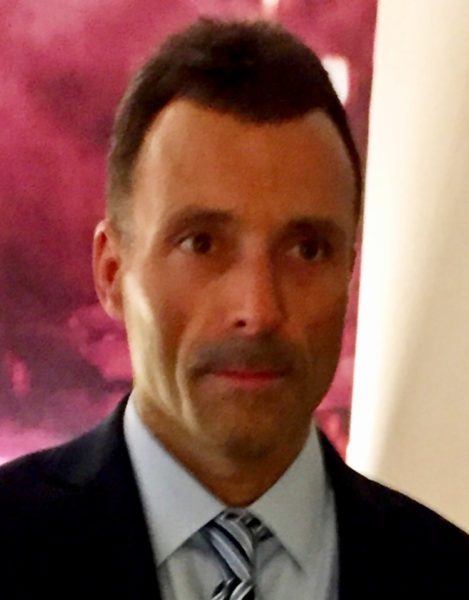 Clearinghouse volunteer Robert Brunelli, Litigation Division Manager and Assistant General Counsel at FM Global, first met William* at one of the Clearinghouse’s Legal Clinics for the Homeless at Metro Housing|Boston.
Clearinghouse volunteer Robert Brunelli, Litigation Division Manager and Assistant General Counsel at FM Global, first met William* at one of the Clearinghouse’s Legal Clinics for the Homeless at Metro Housing|Boston.
William was homeless and using shelter services while undergoing liver treatments at a local medical center. His application for Section 8 housing had recently been rejected due to his criminal record, and he was seeking assistance appealing to the housing authority.
Robert submitted a brief challenging the denial and then accompanied William and one of William’s medical caseworkers to a hearing to argue on William’s behalf. At the hearing, William’s caseworker provided copies of William’s medical history and she and Robert explained that denying William housing would ultimately be a death sentence due to William’s health condition and his need for a safe, clean place to live while he awaited a liver transplant.
Following the hearing, Robert submitted a post-hearing brief reiterating how important it was for William to receive housing assistance. A few weeks later, William received notice that the housing authority had reversed its initial decision and moved him to the top of the housing waitlist.
In the spring of 2020, William moved into a one-bedroom apartment. He is doing well and can now live comfortably and focus on his medical needs.
*Name changed to protect privacy.
June 2020
“[Kevin] helped me get onto the right path to getting my own apartment. Without him, I wouldn’t have been able to get the help I needed because I am unable to work […] When [he] spoke with me, he was incredible. He sent me a letter acknowledging my suffering and he did a lot of work to help me. I wish I could call him and thank him a thousand times!” – Antonio*, Client, Legal Clinic for the Homeless
“To have the opportunity to use all the things you went to law school for to get a concrete result and be able to make what, at times, feels like an unnecessarily complicated system slightly simpler for the people who need it most, is just an amazing feeling.” – Kevin Rich, Associate, Ropes & Gray
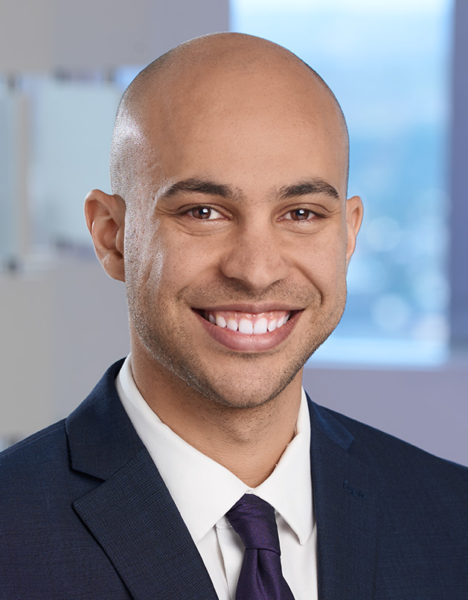 Ropes & Gray Associate Kevin Rich was first connected with Antonio* when Lawyers Clearinghouse reached out to the firm for assistance with a challenging case.
Ropes & Gray Associate Kevin Rich was first connected with Antonio* when Lawyers Clearinghouse reached out to the firm for assistance with a challenging case.
Antonio was unable to work and was living with a family member. He had been approved for Section 8 housing and was waiting for the local housing authority to perform a criminal background check when he suddenly learned he had failed the check and would be permanently removed from the waitlist.
The housing authority claimed Antonio’s criminal record included a conviction from over 20 years ago for manufacturing methamphetamine, which made him ineligible for public housing. However Antonio was adamant that he had never manufactured methamphetamine and had never been charged for doing so. He had in fact worked for many years to stay clean, attend counseling, and turn his life around.
When Kevin viewed a copy of Antonio’s record, he noted the conviction simply listed the manufacture of a “Class B substance.” Over 40 different substances are classified as “Class B,” so Kevin tried to track down copies of the court records for more clarity, only to learn that they had been misplaced and the court was unable to produce them.
Further research into the statutes that govern Section 8 housing showed that the only drug offense that can lead to a permanent ban from Section 8 housing is the manufacture of methamphetamine, specifically on Section 8 property. The housing authority would also need to prove beyond a reasonable doubt that Antonio had violated this statute.
Kevin accompanied Antonio to an informal hearing in front of a hearing officer from the housing authority. He argued that Antonio had never previously lived on Section 8 property, that the housing authority was unfairly conflating a Class B manufacturing charge with methamphetamine production but had no way to prove this claim, and that the charge was over two decades old and thus the statute of limitations had passed.
Six weeks later, representatives from the housing authority informed Kevin and Antonio that they were rescinding the ban and placing Antonio back in his previous spot on the waitlist. They also admitted they had not met their own standards when they elected to ban Antonio in the first place.
Antonio is still living with family, but hopes to acquire housing of his own soon.
*Client’s name changed to protect privacy.
April 2020
“We received a lot more than we anticipated. Now our documents are in a very good position; they’re organized and they’re up to date. It’s a great feeling. We are tremendously thankful to Lawyers Clearinghouse for this valuable resource, which otherwise we could not afford.” – Ana Luna, Executive Director, ACT Lawrence
“The ability to counsel individuals and charities on a pro bono basis is truly one of the ‘perks’ of being an attorney. It was wonderful to work with ACT’s executive director and board to improve governance, address their questions and concerns and strengthen this organization that makes a difference in the lives of so many in the Lawrence community. I am fortunate to have had the opportunity to work with these dedicated people and do my part to help them help others!” – Christine Carlstrom, Associate, Morgan, Lewis & Bockius LLP
 Morgan Lewis Associate Christine Carlstrom was first connected with ACT Lawrence–a nonprofit Community Development Corporation (CDC) that provides home-buying classes, financial coaching, and other important resources to the Lawrence community–through the Clearinghouse’s Legal Referral Program, which matches area nonprofits with pro bono attorneys.
Morgan Lewis Associate Christine Carlstrom was first connected with ACT Lawrence–a nonprofit Community Development Corporation (CDC) that provides home-buying classes, financial coaching, and other important resources to the Lawrence community–through the Clearinghouse’s Legal Referral Program, which matches area nonprofits with pro bono attorneys.
Ana Luna, Executive Director of ACT Lawrence, had reached out to the Clearinghouse to request assistance updating the organization’s bylaws and conflict of interest policy.
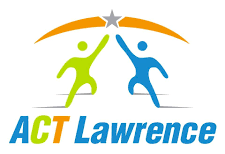 Over the next twelve months, Christine worked closely with Ana and the board to draft documents that would meet all of ACT Lawrence’s needs. She conducted extensive research to ensure everything remained in compliance with state and federal regulations, and even helped update ACT Lawrence’s Articles of Incorporation to be in line with the new documents. Christine also consulted with Clearinghouse Fellow Dick Allen, who helped her identify and clarify the additional rules that CDCs like ACT Lawrence must follow.
Over the next twelve months, Christine worked closely with Ana and the board to draft documents that would meet all of ACT Lawrence’s needs. She conducted extensive research to ensure everything remained in compliance with state and federal regulations, and even helped update ACT Lawrence’s Articles of Incorporation to be in line with the new documents. Christine also consulted with Clearinghouse Fellow Dick Allen, who helped her identify and clarify the additional rules that CDCs like ACT Lawrence must follow.
Ana said Christine’s assistance provided ACT Lawrence with a sense of reassurance and empowerment. In fact, the organization was so pleased with Christine’s work that they presented her with their Volunteer of the Year Award at a recent board meeting.
Strong governing documents are crucial to nonprofit operations, but keeping them up to date and in compliance can be daunting. Please reach out to us if you think your documents could use a refresh, or if you have any other questions or legal concerns.
January 2020
“This was the first pro bono case I was put on when I came to Choate. It was such an incredible experience to be given so much responsibility so early on, and to be there for Danielle* and Thomas*, who were really depending on me.
Everyone should do pro bono, not only for themselves, but also for the people they’re representing, to make a difference and provide them with a positive experience with the legal system. If you can guide them through it in a positive way, I think you can really change people’s views.” – Emily Miller, Associate, Choate Hall & Stewart
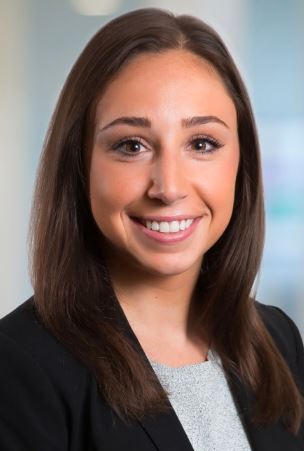 Choate Hall & Stewart associate Emily Miller was first connected with Thomas* and Danielle* after they attended one of the Clearinghouse’s Legal Clinics for the Homeless.
Choate Hall & Stewart associate Emily Miller was first connected with Thomas* and Danielle* after they attended one of the Clearinghouse’s Legal Clinics for the Homeless.
Months prior to the clinic, Thomas and Danielle had been living with their infant son in the attic unit of a multifamily home. They had raised several issues with their landlord, including issues with fluctuations in the temperature of the unit, but their concerns had gone unanswered. When the City of Boston performed a site visit, officials determined the unit was not legally inhabitable because it lacked a second exit in case of emergency.
Thomas, who was recovering from a recent surgery, and Danielle were summoned to a hearing, where they were ordered to immediately vacate their home. Though they were able to leave their son with local family members, they had to spend months living out of their car in the midst of the frigid New England winter.
By the time they met Emily, Thomas and Danielle had finally been able to move in with family, but the experience of losing their home and living in their car had left them shaken and stressed about their future housing stability. Their landlord had also refused to refund their security deposit or compensate them for the many additional costs they faced while functionally homeless. They had had to rent a storage unit and P.O. Box, buy more warm clothing, and eat out far more frequently.
Emily sought to negotiate with the landlord’s counsel, but after negotiations fell through she issued a demand letter on behalf of Thomas and Danielle. She asserted that they had claims to compensation under a number of Massachusetts statutes, including the security deposit statute, the quiet enjoyment statute, and consumer protection statute.
The landlord and his attorney eventually agreed to settle with Thomas and Danielle, offering them an amount equal to three-times their original security deposit plus additional compensation for what they had gone through since being forced from their home.
Today, Thomas and Danielle are still living with family, but they hope to move out soon and find a safe and stable home where they can raise their son.
*Clients’ names changed to protect privacy.
December 2019
“Pro bono work has given me the opportunity to hone my advocacy skills and make a real difference in someone’s life. There are few things more important than having a safe and comfortable place to live, and I am so glad that we were able to help Dana successfully resolve her eviction case and find a new apartment to call home.” – Rob Donoghue, Associate, Wilmer Cutler Pickering Hale and Dorr LLP
“Working with pro bono clients is one of the most rewarding things a lawyer can do. Together we were able to make a real difference in Dana’s life.” – Sonia Sujanani, Senior Associate, Wilmer Cutler Pickering Hale and Dorr LLP
 WilmerHale attorneys Rob Donoghue and Sonia Sujanani first met Dana* at one of the Clearinghouse’s Legal Clinics for the Homeless.
WilmerHale attorneys Rob Donoghue and Sonia Sujanani first met Dana* at one of the Clearinghouse’s Legal Clinics for the Homeless.
Dana was seeking legal assistance because her landlord was not keeping up with the maintenance of her apartment. She was dealing with an insect infestation and a number of other structural problems outside of her control, and the unit had failed multiple inspections.
After Sonia wrote to the landlord on Dana’s behalf, informing him that Dana would withhold rent until he repaired the defective conditions and made the apartment habitable, the landlord moved to evict Dana for nonpayment of rent. Rob represented Dana during mediation in housing court, where both parties agreed Dana would keep all of the rent money she had withheld for five months and vacate the unit.
Dana has since moved into a new apartment that is better maintained. Rob ensured all of her rental assistance paperwork was filed correctly, so she can move forward without the threat of housing instability.
*Client’s name has been changed to protect privacy.
November 2019
“The core principle that drives bankruptcy law is that everyone is entitled to a second chance, a fresh start. Mistakes have consequences, but they do not have to define the rest of your life.” – Mark Polebaum, 2018-2019 Access to Justice Fellow
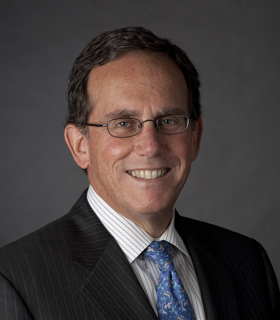 Attorney Mark Polebaum worked in bankruptcy law for the first 25 years of his legal career. After he retired in 2017, he signed up as an Access to Justice Fellow through Lawyers Clearinghouse and elected to focus his pro bono Fellowship project on student loan debt and bankruptcy—intertwined issues that often have a lasting, negative impact on people’s lives.
Attorney Mark Polebaum worked in bankruptcy law for the first 25 years of his legal career. After he retired in 2017, he signed up as an Access to Justice Fellow through Lawyers Clearinghouse and elected to focus his pro bono Fellowship project on student loan debt and bankruptcy—intertwined issues that often have a lasting, negative impact on people’s lives.
As a Fellow, Mark partnered with the MA Attorney General’s Office (AGO). The AGO designated him a Special Assistant Attorney General to work with the bankruptcy assistance team that Attorney General Maura Healey had established in 2017 and help coordinate the AGO’s efforts with those of the Massachusetts Bar Association (MBA) Student Loan Bankruptcy Assistance Project.
Prior to becoming a Fellow, Mark had heard of a case involving Ellen*, a 63 year old woman who had accrued over $100,000 in student loan debt after returning to law school in her 50s. After many years of trying unsuccessfully to pay off her debt—having graduated from law school into the Great Recession—Ellen filed for bankruptcy and asked the court to discharge her student loans citing undue hardship. The trial court held that although Ellen lived very frugally and did not earn sufficient income to repay her student loans, it would not be an undue hardship for her to repay the loans because she had $125,000 of equity in her principal residence.
Mark thought the ruling was profoundly unfair and a clear violation of a debtor’s homestead exemption rights under Massachusetts law. Surprisingly, there was virtually no case law that analyzed the status of exempt assets in an undue hardship context, although there were several cases from other districts that treated exempt assets as available to pay student loan debt without analysis. Obtaining a ruling that an exempt homestead is not an available asset for purposes of undue hardship analysis would be a substantial step in humanizing the fairly draconian interpretation of undue hardship.
Mark convinced Frank Morrissey, one of the attorneys responsible for managing the MBA’s Student Loan Assistance Project, to take Ellen’s case on a pro bono basis and helped the AGO draft an amicus brief on behalf of the Commonwealth. In the brief, Mark and the AGO argued that the Massachusetts legislature’s determination that a homestead is not available to pay creditors must be honored by the Bankruptcy Court as the Bankruptcy Code makes state law exemptions enforceable in bankruptcy cases. A decision by the legislature to exempt an asset from the reach of creditors is tantamount to a determination that doing without the exempt asset would be an undue hardship. Although the trial court did not order the debtor to sell her homestead, because the debtor has no other source of income to pay the student loans, the practical effect of not discharging the loans because of the existence of equity in her homestead was to make the homestead liable for the loans.
In May, Mark organized a moot hearing to help prepare attorney Morrissey for the hearing before the Bankruptcy Appellate Panel (the “BAP”). In a unanimous opinion the BAP reversed the earlier ruling against Ellen, stating definitively that an exempt homestead is exempt for all purposes in bankruptcy, including undue hardship analysis.
The BAP remanded the case to the trial court for further proceedings consistent with its holding. On remand, the trial court discharged all of Ellen’s student loans. Today, she can focus on rebuilding her life, free from the stress of unwieldy debt.
The outcome of this case also has larger implications for student loans, as Massachusetts law exempts from the claims of creditors, among other things, social security benefits and certain pension and IRA benefits. Whether these other categories of exempt assets will be protected the same as a homestead is to be determined. Mark and the AGO hope to continue this important work and seek out systemic solutions that will have an even larger impact.
*Client’s name has been changed to protect privacy.
June 2019
“I figured I’d take a benefits case or a CORI case [at the Legal Clinic], but then I met Liana and her story tugged at my heartstrings. As a lawyer, you think, ‘I need to figure out a way to help this person.’ And having volunteered with Lawyers Clearinghouse in the past, I knew that the resources would be there, which made me feel confident taking the case.” – Joshua Carroll, Associate, Ropes & Gray LLP
“[Pro bono] is something I take on happily. It’s important that we help people who have issues that they can’t necessarily resolve on their own or can’t resolve as successfully or as easily on their own. It’s one way lawyers can give back to the community and it’s so important to keep doing it.” – Caitlin O’Neill, Associate, Ropes & Gray LLP
 When Ropes & Gray associates Joshua Carroll and Caitlin O’Neill first met Legal Clinic client Liana*, she had just received an eviction notice from her landlord. It was late fall and Liana was concerned that she and her young daughter would end up without a home.
When Ropes & Gray associates Joshua Carroll and Caitlin O’Neill first met Legal Clinic client Liana*, she had just received an eviction notice from her landlord. It was late fall and Liana was concerned that she and her young daughter would end up without a home.
Months prior, Liana learned she was pregnant and requested her landlord perform a lead test to ensure the unit was safe for her future child. The test came back positive for lead and, a month later, Liana received the eviction notice. The landlord claimed he was simply selling the building, but Josh and Caitlin believed the eviction was actually retaliatory and that the landlord was trying to avoid the legally-required deleading process.
Over the next few weeks, Josh and Caitlin worked with Clearinghouse Legal Clinic mentor Dick Bauer, a housing law expert, to come up with a settlement offer for the landlord. Dick provided further guidance throughout the negotiation process with the landlord’s attorney and gave Josh and Caitlin tips on what to expect were the case to go to court.
Following a series of offers and counter-offers, the landlord agreed to settle out of court. Liana received reimbursement for 8+ months of rent, equaling almost $10,000, as well as a reference letter from the landlord, in exchange for vacating the unit. Thanks to the settlement, Liana and her daughter will easily be able to afford new housing.
*Client’s name has been changed to protect privacy.
May 2019
“For people like Peter, pro bono representation is the best, and in many cases only, chance they have for their rights to be vindicated. In Peter’s case, there were overlapping issues and complexities that he couldn’t reasonably have been expected to navigate on his own. Having lawyers to help him made all the difference. There are a lot of other people out there like Peter, and with relatively small efforts, we can each help bring big changes to their lives.”
– Benjamin Conery, Senior Associate, Wilmer Cutler Pickering Hale and Dorr LLP“Dedicating my time to pro bono work is about doing my small part to make the pursuit of justice (something that should be accessible to everyone at any time) more equitable. It’s rare for an individual pro bono client to have only one economic struggle or legal problem – instead many interlocking hurdles can create a situation that is insurmountable without legal representation. In Peter’s case he was not only denied the benefits he was entitled to, but we also discovered that he was the victim of identity theft. It was a privilege to help untangle the unjust web of difficulties he faced and secure the benefits he deserves.”
– Paloma Naderi, Associate, Wilmer Cutler Pickering Hale and Dorr LLP
 WilmerHale attorneys Benjamin Conery and Paloma Naderi first met Peter* after he attended one of the Clearinghouse’s Legal Clinics at Pine Street Inn.
WilmerHale attorneys Benjamin Conery and Paloma Naderi first met Peter* after he attended one of the Clearinghouse’s Legal Clinics at Pine Street Inn.
Peter, who suffers from intellectual and physical disabilities, had been homeless for several years. He was seeking assistance appealing multiple denials for Social Security disability benefits.
Ben and Paloma represented Peter at a hearing in front of an administrative law judge (ALJ), where it became apparent that someone had likely stolen Peter’s identity and was using his Social Security information to report their earnings. This reported income made it appear that Peter was in fact working and therefore not disabled and entitled to benefits.
Over the course of a year, Ben and Paloma tried to prove that Peter was a victim of identity theft, but tracking down the relevant information proved to be difficult. Independent investigations conducted by the Social Security Administration and the IRS did not find sufficient evidence to remove the listed earnings, while attempts to reach the employer of the identity imposter were unsuccessful. During this time, the additional earnings put Peter in danger of also losing his state assistance.
Eighteen months after Peter’s first hearing, Ben and Paloma represented him at a second administrative hearing, where the ALJ asked them to gather more evidence supporting the claim that Peter’s identity had been stolen. They collected affidavits from his former social worker and the adult day center where he attended programs.
A couple weeks later, the ALJ returned a “partially favorable” decision, which concluded that Peter could still work sedentary jobs, but that in light of his age, education, and past work experience, there were very limited employment options available to him. And while the ALJ ruled to leave the earnings in question on Peter’s record, they said that the timing and amount of the earnings did not impact Peter’s ability to receive benefits.
Today, Peter receives monthly benefits payments that far surpass his initial state benefits. He says he is hoping to eventually move out of the rooming house where he lives and into an apartment of his own.
*Client’s name has been changed to protect privacy.
April 2019
“Pro bono is obviously legal work, but it’s also legal advocacy. When you take on a pro bono case you can really see how being an advocate for people—who may not have the support systems they need—can make such a big difference in their lives.” – Stephanie Calnan, Associate, Brown Rudnick LLP
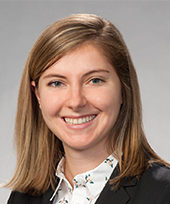 Attorney Stephanie Calnan, an associate at Brown Rudnick LLP, first met Philip* at one of the Clearinghouse’s Legal Clinics at Bridge, a Boston-based shelter for homeless and at-risk youth.
Attorney Stephanie Calnan, an associate at Brown Rudnick LLP, first met Philip* at one of the Clearinghouse’s Legal Clinics at Bridge, a Boston-based shelter for homeless and at-risk youth.
At the time, Philip was 17, estranged from much of his family, and living at Bridge. He had recently lost his wallet—which he suspected had been stolen—containing all of his identification cards and his green card. Philip needed a federal ID in order to get a new state ID, so Stephanie decided to focus on acquiring a new green card first.
While preparing to request a new green card for Philip, Stephanie conferred with clinic mentor Heather Friedman, an expert in immigration law. Heather told Stephanie to look into the possibility that Philip actually had derived citizenship through his father, who was a naturalized citizen. Derived citizenship occurs automatically, but Philip needed to provide Immigration and Naturalization Services with a number of documents, including his original birth certificate, to make it official.
Philip’s grandmother was able to procure his birth certificate on a trip to Haiti, and Philip patched up his relationship with his father, who provided additional necessary documents. In the meantime, Stephanie filed a Freedom of Information Act request for further information on Philip’s father’s immigration status.
It turned out Philip was a naturalized citizen and, in early 2019, over a year after they first met, Stephanie handed him his official U.S. Passport. Philip was thrilled; he never could have expected that a lost wallet would lead to such a fortuitous outcome.
*Name has been changed to protect privacy.
March 2019
“There aren’t many things in life that you can do that are as critical to another person and, consequently, are as meaningful to you when you can help. As a lawyer, I’ve found this work to be one of the most gratifying things I’ve done. I’m so glad that [Michael’s case] has a happy ending.” – Martha Koster, Member, Mintz, Levin, Cohn, Ferris, Glovsky and Popeo, P.C.
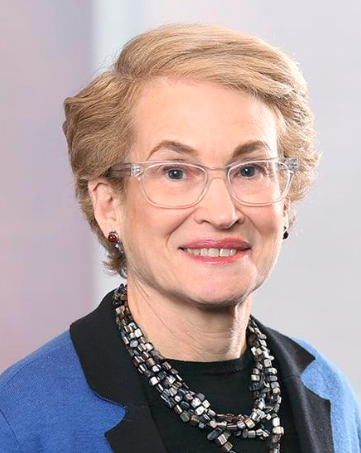 Attorney Martha Koster, a member at Mintz Levin and a 2012-2013 Access to Justice Fellow, first met Michael* in 2014 through her volunteer work representing asylum seekers and detained immigrants through the PAIR (Political Asylum/Immigration Representation) Project.
Attorney Martha Koster, a member at Mintz Levin and a 2012-2013 Access to Justice Fellow, first met Michael* in 2014 through her volunteer work representing asylum seekers and detained immigrants through the PAIR (Political Asylum/Immigration Representation) Project.
Michael, who was born and raised in Jamaica, realized he was gay at a young age. Homosexuality is criminalized and highly stigmatized in Jamaica, and Michael’s life there was marked by numerous incidents of extreme violence against him, as well as social isolation and rejection by his family.
After Michael entered college, he met and eventually began living with his partner Aaron.* Although they presented themselves as roommates, the couple started to receive frequent anonymous death threats from people who suspected that they were gay. They went to the police, who advised them to leave the country. Aaron was able to secure a visa quickly through his father and moved to Massachusetts, while Michael stayed behind and became increasingly concerned for his safety.
Eventually Michael’s visa application was approved and in 2014 he moved to Worcester, where he and Aaron lived together, supported by the LGBT Asylum Task Force. Pastor Judy Hanlon, co-founder of the program, connected Michael with PAIR and he began to work with Martha and her colleagues at Mintz on his application for asylum.
The Mintz team had Michael meet with a therapist, who evaluated him and diagnosed him with severe PTSD and depression. Michael also had permanent disabilities and problems with his memory due to the violence he had endured. Despite his trauma, Michael had to discuss his past many times in order to prepare for his eventual asylum interview.
In February 2018, four years after Martha took his case, Michael was finally granted an asylum interview. Martha and her colleague, Mintz member Drew DeVoogd, accompanied Michael to his interview, where Michael presented his harrowing story to a hearing officer. Six weeks later, Michael was granted asylum.
Coming to the U.S. and receiving asylum has completely changed Michael’s life. Today he has a fulfilling job working with children with mental health conditions and developmental disabilities and he and Aaron—who was also granted asylum—are engaged, living together openly, and are active members of their local LGBTQIA community.
The Clearinghouse extends its gratitude to Martha, a co-founder of our Access to Justice Fellows Program who has remained deeply involved and has been instrumental to the program’s growth over the past seven years. Since serving as a Fellow with PAIR in 2012, Martha has continued to represent many immigrants seeking asylum and has made a huge difference for so many people and their families. Thank you, Martha!
*Names changed to protect privacy.
February 2019
“Having legal representation is really critical in getting a product that meets the needs of the organization, and I’m certain that the [lease] we got was far better than anything we could have achieved with our own internal resources. There’s a lot of stress involved in moving, and this was one component where we didn’t have much to worry about.” – Bob Peters, Director of Administration & Finance, Partners for Youth with Disabilities
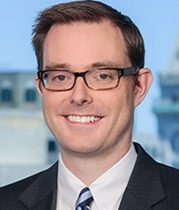 Attorney Jarrod Matteson, Partner at DLA Piper, was first connected with the nonprofit Partners for Youth with Disabilities (PYD) after Bob Peters, PYD’s Director of Administration & Finance, attended one of the Clearinghouse’s Nonprofit Consultation Programs focusing on commercial leases.
Attorney Jarrod Matteson, Partner at DLA Piper, was first connected with the nonprofit Partners for Youth with Disabilities (PYD) after Bob Peters, PYD’s Director of Administration & Finance, attended one of the Clearinghouse’s Nonprofit Consultation Programs focusing on commercial leases.
PYD had been operating out of the same location for over a decade, but its lease had recently expired and the landlord had elected to sell the building. The organization was in the process of moving into a new office space and had hired a broker to assist with the initial letter of intent. Soon after, they received the proposed commercial lease from the prospective landlord.
At the consultation, Jarrod looked over PYD’s draft lease and found that, as with many commercial leases, it was very favorable to the landlord. Over the next couple weeks, he helped PYD negotiate a new, more balanced lease that met its needs and served to protect the organization from future unforeseen circumstances.
PYD has since moved into its new office space, and Bob says everyone was thrilled with the work Jarrod did to assist them.
January 2019
“This was not a trivial deal; this was a woman who had some challenges in life and had young kids that she was trying to get on the right path. This case could have fundamentally upended her life and the lives of her kids forever. I feel a deep obligation to give back to people, particularly in these tough situations.” – Christopher Clark, Counsel, Skadden, Arps, Slate, Meagher & Flom LLP
“Giving back is a privilege and, I think, a professional responsibility. In terms of housing, specifically, it doesn’t really get much more important. When you think about what you need to survive, a roof over your head is one of the most crucial things.” – Isaac Saidel-Goley, Associate, Skadden, Arps, Slate, Meagher & Flom LLP
“Being a lawyer and having a respect for a sense of fairness, nothing seems more unfair than when case outcomes are dictated by unequal access to representation. The ability to help correct that by making sure our pro bono clients have access to our time and resources is so meaningful.” – Nigel Tamton, Associate, Skadden, Arps, Slate, Meagher & Flom LLP
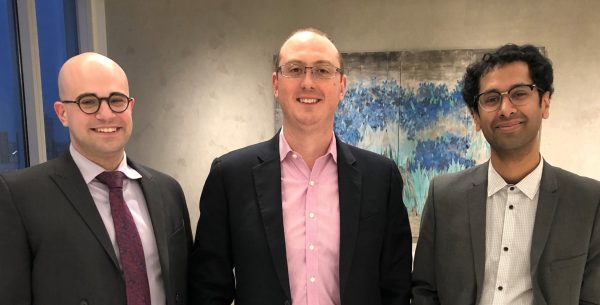
Skadden attorneys Christopher Clark, Isaac Saidel-Goley, and Nigel Tamton were first connected with Camila* in the spring of 2018 when they received an email from the Clearinghouse and Volunteer Lawyers Project regarding a challenging eviction case.
Camila had been living with her three young children in a building operated by a local housing authority and had previously been in a relationship with a man who often stayed in her unit as a guest. One evening, the police executed a warrant to search her unit for controlled substances. They found two plastic bags containing an unidentified substance belonging to Camila’s then-boyfriend and arrested him. Though Camila was not arrested and the substance was never identified, the housing authority claimed she was in violation of her lease and expedited an eviction proceeding.
Camila and her children had nowhere to go and were facing imminent homelessness–as well as potential issues stemming from the criminal case against her ex–so Chris, Isaac and Nigel had to move quickly. They immediately filed a motion to dismiss, while also filing discovery requests.
The team requested and was granted the opportunity to take depositions from the police officers who had been involved in the search and arrest. Depositions in an eviction proceeding are rare, but the judge agreed there were extenuating circumstances. The officers testified that they did not believe Camila to be culpable and didn’t want her and her children to be evicted due to the bad actions of a third party.
Following the favorable testimony from the officers and multiple mediation sessions, the housing authority ultimately agreed to drop its eviction request. Camila and her family were able to remain in their apartment, where she can continue working to build a better life for herself and her children.
*Client’s name has been changed to protect privacy.
December 2018
“Lawyers have a really powerful platform, and I believe it is both an obligation and a privilege for us to use this platform and our skills to help people in need.” – Sarah Roscioli, Associate, Nixon Peabody
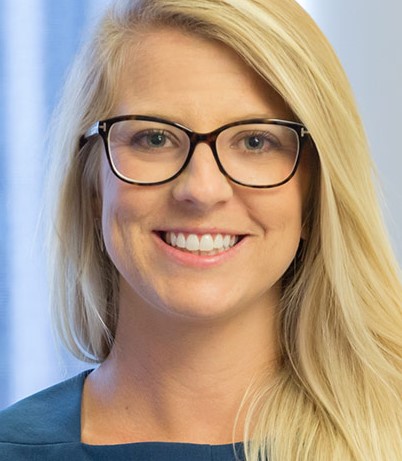
Nixon Peabody associate Sarah Roscioli first met Anna* at one of the Clearinghouse’s Legal Clinics.
Anna was seeking legal assistance after a bad experience moving into her first apartment, which she had initially only seen in pictures. When she arrived to move in the unit was in disarray, with faulty electric and an untreated rat problem.
Anna requested assistance from her landlord multiple times, but he was unreliable and often unresponsive. After a couple of weeks he told her he was not going to address the issues, and that if she was unhappy she could move out. Anna decided to move out, only to find he would not refund the $2,300 she had given him for first and last month’s rent and a security deposit, even though she had lived in the apartment for less than a month.
Sarah researched landlord-tenant law and, with guidance from clinic mentor Dick Bauer and Nixon Peabody partner Sarah Connolly, drafted a demand letter to Anna’s former landlord, who by then had left the state and moved to Texas. After receiving the letter, the landlord quickly refunded all of Anna’s money. Anna has since found stable housing elsewhere and is happy she was able to recoup such a large sum of her savings.
*Client’s name has been changed to protect privacy.
November 2018
“The work Jason did for us really helped ease the concerns of our board and has enabled us to do our job better, with less stress and less worry. He spent a substantial amount of time on this matter and we’re so grateful.” – Thea Bader, Executive Director, International Social Work Solutions, Inc.
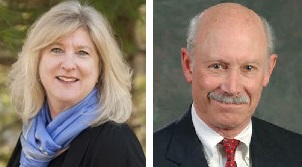 Licensed social worker Thea Bader already had many decades of experience working in communities in the U.S. and internationally when, in 2016, she founded International Social Work Solutions (ISWS). Through ISWS, Thea, along with her volunteer board of directors, provides stipends that enable social workers to travel to different countries and partner with non-governmental organizations (NGOs) that are providing direct care to communities in need.
Licensed social worker Thea Bader already had many decades of experience working in communities in the U.S. and internationally when, in 2016, she founded International Social Work Solutions (ISWS). Through ISWS, Thea, along with her volunteer board of directors, provides stipends that enable social workers to travel to different countries and partner with non-governmental organizations (NGOs) that are providing direct care to communities in need.
As ISWS grew and started to fund these trips, the ISWS Board of Directors became concerned about potential liability and lawsuits resulting from any issues that might occur abroad.
Thea reached out to the Clearinghouse for assistance and was connected with attorney Jason Cotton, a retired partner at Peabody & Arnold LLP and one of the Clearinghouse’s Access to Justice Fellows, who works with the Clearinghouse to assist Massachusetts nonprofits with their legal needs.
Jason developed a comprehensive document for ISWS titled “Stipend Recipients Release of Claims.” Jason also amended ISWS’s original Articles of Organization—the document nonprofits must submit to the Massachusetts Attorney General’s Office when incorporating—to better reflect ISWS’s expanded mission.
ISWS continues to grow and partner with more social workers and international NGOs. Thea credits Jason’s pro bono assistance for allowing ISWS to focus on its important work.
October 2018
“I had been looking for housing cases because I had experience running a housing clinic in law school. It’s hard to overstate how critical housing work is. It can be taken for granted by people who are on their feet and can take care of themselves, but it’s important to help people out and ensure they have a roof over their heads.” – Eric Schlichte, Associate, Holland & Knight LLP
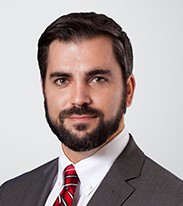 When Eric Schlichte, an associate at Holland & Knight LLP, received an email from a colleague about open pro bono cases at Lawyers Clearinghouse, he signed up to help Clearinghouse client Adam*.
When Eric Schlichte, an associate at Holland & Knight LLP, received an email from a colleague about open pro bono cases at Lawyers Clearinghouse, he signed up to help Clearinghouse client Adam*.
Adam was homeless and living in a shelter after the local housing authority terminated his Section 8 voucher when he failed to show up for a required voucher recertification hearing. As someone who has long struggled with a number of mental health issues, Adam has trouble communicating and staying organized when it comes to such obligations.
Eric met with Adam’s leasing officer at the housing authority and was able to acquire a new voucher after submitting the necessary documents.
A month later, Adam received a notice from the housing authority accusing him of fraud. Years prior, Adam’s daughter had lived with him and his voucher had indicated he lived in a two-person household, but his daughter had since moved out. When Eric and Adam reapplied for a new voucher and indicated that Adam needed housing for only one person, the discrepancy led the fraud department to recommend once again terminating Adam’s voucher.
Eric quickly requested a pre-hearing conference with members of the fraud department, where he and Adam were able to provide the relevant background information. Following the hearing, the housing authority determined that Adam’s family composition had not been properly documented when his daughter moved out and agreed to cancel the proposed termination.
Thanks to his new voucher, Adam can now look for housing and plans to move out of the shelter soon. The constant noise at his previous, street-level apartment had exacerbated his mental health issues, so he looks forward to finding a unit in a quieter location.
*Client’s name has been changed to protect privacy.
September 2018
“As attorneys we have the ability to use our skills and qualifications to help people for whom the legal system may seem unapproachable or hard to navigate, and we should all try to do that to the extent we can.
I didn’t have much experience in this area [of law], and it was really gratifying to achieve such a successful outcome. Being able to collect disability benefits has totally changed Carl’s day-to-day life.” – Patrick Niebauer, Associate, Nolan Sheehan Patten LLP
 Attorney Patrick Niebauer, an associate at Nolan Sheehan Patten, first met Carl* at a Legal Clinic for the Homeless at Pine Street Inn.
Attorney Patrick Niebauer, an associate at Nolan Sheehan Patten, first met Carl* at a Legal Clinic for the Homeless at Pine Street Inn.
Carl was living at Pine Street and was seeking assistance acquiring disability benefits. He had previously lived in Tennessee, where he served as a live-in caretaker for his brother. When his brother died, Carl lost his only source of income and became homeless. He applied for benefits but was unsuccessful. Carl then decided to leave Tennessee and moved to Boston where, soon after, his wallet was stolen, leaving him with no forms of identification.
Following the Legal Clinic, Carl worked with a case manager at the shelter who helped him acquire a state ID. Meanwhile, Patrick and Carl started the process of reapplying for benefits (both SSI and SSDI), going to the Boston Social Security office in person to meet with a representative to obtain the information needed to ensure a successful application. Patrick also coordinated with the Social Security office in Tennessee and tracked down many of Carl’s medical records to bolster Carl’s application.
Carl’s new application for SSDI was denied after it was determined that he did not have the required work history to receive payments. However, the administration granted his request for SSI and awarded him the maximum amount allowed on a monthly basis.
These disability payments are the only income Carl has had in two years and they have enabled him to finally envision and plan for a more secure future. He recently told Patrick he was on a few waiting lists for housing and that he had picked up playing the guitar—one of his lifelong passions—after many years.
*Client’s name has been changed to protect privacy.
August 2018
“It’s really important for lawyers to do pro bono work. We’re particularly privileged to be able to defend ourselves and others in a way that some people and organizations can’t.
There’s a lot of misinformation out there and pro bono is about helping people understand the information and the law and how it applies and helping them make informed decisions. When a person or organization doesn’t have the resources to do that, I think lawyers have a duty, to the extent that they can, to try to help.” – Charlotte Petilla, Attorney, Hirsch Roberts Weinstein LLP
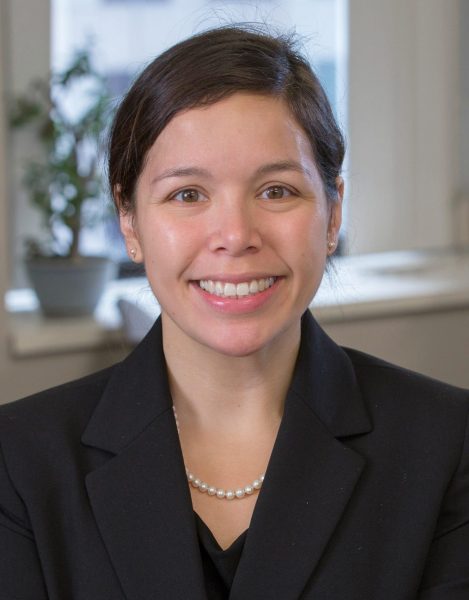 When a small, Boston-area nonprofit with a focus on food insecurity needed a pro bono attorney to assist with updating its employee leave policy, a member of the board of directors reached out to Lawyers Clearinghouse. The Clearinghouse quickly paired the organization with Charlotte Petilla, an employment law attorney from Hirsch Roberts Weinstein.
When a small, Boston-area nonprofit with a focus on food insecurity needed a pro bono attorney to assist with updating its employee leave policy, a member of the board of directors reached out to Lawyers Clearinghouse. The Clearinghouse quickly paired the organization with Charlotte Petilla, an employment law attorney from Hirsch Roberts Weinstein.
The nonprofit already had a leave policy in place, but the board wanted to add an additional clause that would better enable employees with challenging circumstances to take time off. They also wanted to ensure the policy was fair while taking into account the many legal considerations involved. Employment laws are constantly changing and are not often black and white, so it’s crucial that steps be taken to maintain compliance with existing requirements.
Charlotte worked with the board of directors both in person and by phone to draft a comprehensive policy that was legally compliant and provided employees with a number of practical leave options.
The nonprofit board and employees are happy to have a formal policy that they feel covers all legal bases and makes employees feel supported, and they plan to continue receiving occasional counsel on other employment matters from Hirsch Roberts Weinstein moving forward.
“I wish we had contacted the Lawyers Clearinghouse much sooner. With the help of the Internet, we went down a few dead ends before getting the legal advice that helped us move forward in a much more strategic fashion. There is simply no substitute for advice from people who know the law and deal with these issues on a daily basis. Lesson learned.” – Vice President of the Board, Nonprofit Client
July 2018
“The way our legal system is set up can be very confusing for anyone, no matter their education or income level; it can be confusing even for lawyers. Because of that, the unfortunate reality is that when individuals don’t have an attorney, the chances of them losing their case are very high, even if they have a really compelling case.
I look at myself as being a resource for people. It’s important to help a client say what they would want to say if they knew the language and the procedure of the judicial system.” – Cameron McGinn, Volunteer Attorney
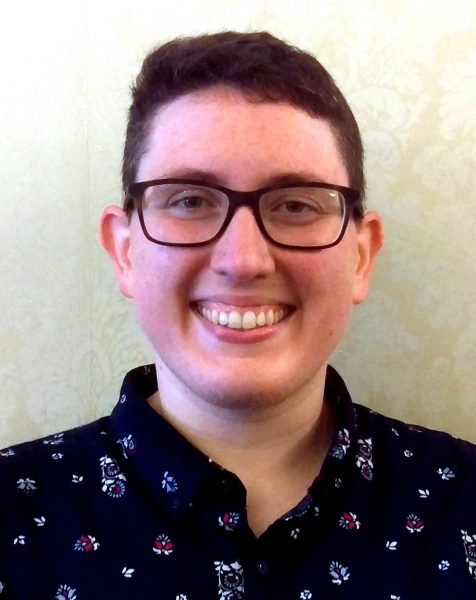 Attorney Cameron McGinn was first connected with Legal Clinic client John* when he got an email from clinic mentor Dick Bauer asking if he could represent a client in a last minute court proceeding. Cameron was already working on multiple pro bono cases for the Clearinghouse and Volunteer Lawyers Project, but agreed because he knew how important it was for a client to have counsel in court.
Attorney Cameron McGinn was first connected with Legal Clinic client John* when he got an email from clinic mentor Dick Bauer asking if he could represent a client in a last minute court proceeding. Cameron was already working on multiple pro bono cases for the Clearinghouse and Volunteer Lawyers Project, but agreed because he knew how important it was for a client to have counsel in court.
John, a low-income senior, was facing eviction due to a misunderstanding with his landlord, who was renovating the apartment building and had offered all of the tenants a sum of money, as well as waived rent, if they agreed to move.
John had previously told the landlord he would think about the offer and get back to him, but was too sick to discuss the offer when the landlord returned. However, he assumed his landlord understood that he was going to accept, so he stopped paying his rent per the terms of the landlord’s offer. Meanwhile, John’s landlord did not realize his intentions and started eviction proceedings when he did not receive further rent payments.
Cameron met with John and they discussed the potential outcomes of the case. Cameron then met with the landlord’s attorneys, who informed him that the landlord was still willing to offer John the deal.
John was happy to accept his landlord’s offer and thankful for Cameron’s help in negotiating with the landlord’s attorneys and resolving the issue. He is still in his apartment, rent-free, and plans to move soon.
*Client’s name has been changed to protect privacy.
June 2018
“As lawyers, we have a unique ability to step in and help people navigate a complicated system and to advocate on their behalf, and pro bono is a chance to put these skills to use.
Helping someone in need find a place to live for the future–so they have stability in their life and can try to move forward and find a job–that type of work is essential.” – Rob Donoghue, Associate, WilmerHale
 WilmerHale Associate Rob Donoghue first met Thomas* at a Legal Clinic at Pine Street Inn.
WilmerHale Associate Rob Donoghue first met Thomas* at a Legal Clinic at Pine Street Inn.
Thomas did not have a place of his own and had spent time staying with different family and friends. He was seeking legal assistance after his application for income-restricted housing was denied. The third-party company that performed the application screening had determined that Thomas was financially ineligible for the income-restricted housing based on an annual income projection that included previous temporary employment.
With Rob’s help, Thomas appealed the application company’s decision and submitted additional documentation to establish that his prior temporary employment could not be projected as recurring income. They also submitted a letter stating that the additional documentation demonstrated that Thomas was eligible for the income-restricted housing unit.
After receiving the additional documentation and letter, the application company granted Thomas’s appeal and certified that he was financially eligible for the low-income housing unit. It then forwarded his application to the local housing authority for final review and approval. The housing authority determined that Thomas was financially eligible and approved his application.
Thomas signed his lease and officially moved in to his new apartment on June 1. He told Rob he is excited about having his own place and his outlook for the future.
*Client’s name has been changed to protect privacy.
May 2018
“I’m always interested in trying to assist people who otherwise can’t afford legal services, but I’m a commercial real estate lawyer, so it’s sometimes challenging to find cases that line up with my experience. I’m glad I was able to find something where I could help out and use my background.” – Susan Davis, Of Counsel, Nelson Mullins Riley & Scarborough LLP
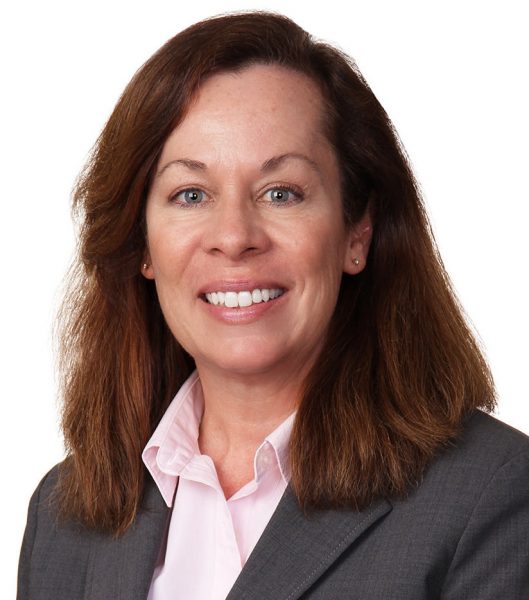 In 2013, a small nonprofit–with a focus on community improvement and economic development–was searching for office space in Western Massachusetts. The executive director located a property owned by an elderly landlord who was having trouble keeping up with the tax payments for his building. The nonprofit agreed to pay the outstanding taxes in the form of a loan to the landlord to get the property out of tax title and the parties had a note drawn up for the loan. The property ended up being deeded to the nonprofit organization and the landlord later asserted that he had not intended to convey the property.
In 2013, a small nonprofit–with a focus on community improvement and economic development–was searching for office space in Western Massachusetts. The executive director located a property owned by an elderly landlord who was having trouble keeping up with the tax payments for his building. The nonprofit agreed to pay the outstanding taxes in the form of a loan to the landlord to get the property out of tax title and the parties had a note drawn up for the loan. The property ended up being deeded to the nonprofit organization and the landlord later asserted that he had not intended to convey the property.
The organization then became responsible for future tax bills, but soon also fell behind on the tax payments. The former landlord sued the organization to have the property deeded back to him. The organization reached out to Lawyers Clearinghouse and was connected with commercial real estate attorney Susan Davis, Of Counsel at Nelson Mullins.
Susan worked with the organization’s director and the former landlord and his counsel to broker a settlement agreement to resolve the matter. The settlement terms required that the former landlord pay the organization the amount outstanding under the loan plus all additional amounts the organization had paid in real estate taxes and for repairs and expenses of the property. In order for the landlord to pay back the organization, the property needed to be sold.
After a lengthy negotiation process, the landlord was able to secure a buyer for the property and at the closing of the sale, the organization was paid back all amounts it was owed. The nonprofit located a more affordable office space and plans to move soon. The organization is happy that the matter has been resolved, so they can focus on serving the community and helping more people in need contend with their financial issues.
April 2018
“A mentor once told me that law is a profession, not just a business. As a lawyer, when you see someone who’s down, you try to help them up.
Housing stability is incredibly important for success in day-to-day life, and I believe that a person’s access to housing should not be dependent on social capital. Everyone deserves a support network.” – Zach Mykulak, Associate, Goulston & Storrs
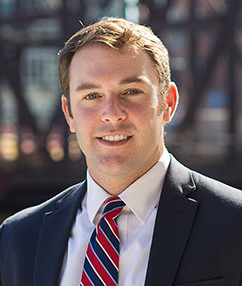 Goulston & Storrs associate Zach Mykulak first met Tracy* at a Legal Clinic for the Homeless at the Women’s Lunch Place.
Goulston & Storrs associate Zach Mykulak first met Tracy* at a Legal Clinic for the Homeless at the Women’s Lunch Place.
Tracy was seeking legal assistance after receiving an eviction notice from her landlord. Her grandmother had become ill in the months prior to the clinic, so Tracy had elected to stay with her. In the meantime, she had a friend house-sit at her apartment. After the friend threw a number of loud parties, Tracy’s neighbors complained to the landlord, who decided to start eviction proceedings due to a violation of Tracy’s lease agreement.
Tracy requested a grievance panel hearing, where she would have the opportunity to state her case to a panel comprising representatives from the housing authority and three residents of the apartment complex. Zach worked with Tracy to develop a statement describing the ongoing stress she was dealing with surrounding her grandmother’s health issues and promising to use better judgement in the future.
At the hearing, the housing authority started by presenting the reasoning for moving to evict Tracy. Zach pointed out that the housing authority had not provided any documented evidence of parties or violations of specific provisions of the lease. He then delivered Tracy’s statement to the panel and explained that she was working hard to improve her life by going back to school and meeting regularly with a social worker.
A week later, Tracy and Zach received the panel’s final decision, which denied the housing authority permission to move forward with its eviction proceeding in court. Tracy is relieved that she will be able to keep her housing so she can focus her energy on moving forward.
*Client’s name has been changed to protect privacy.
March 2018
“I would like to thank you for taking up my causes and all of your legal advice along the way. I especially would like to thank you for your humanity. I never felt less than a real person even though my imperfections would have made it easy for you to judge. Collectively you gave me a glimmer of hope when I had none.” – Richard, Client, Legal Clinic for the Homeless
 Ropes & Gray associate Joshua Carroll first met Richard* at a Legal Clinic for the Homeless at the Southampton Shelter. Richard was homeless and unable to access his pension benefits because the release form his former employer had sent him required the signature of the plan beneficiary, his estranged wife.
Ropes & Gray associate Joshua Carroll first met Richard* at a Legal Clinic for the Homeless at the Southampton Shelter. Richard was homeless and unable to access his pension benefits because the release form his former employer had sent him required the signature of the plan beneficiary, his estranged wife.
Following the clinic, Josh and Richard met a second time. Josh gathered the relevant information and contacted Richard’s former employer. Over the course of the call, Josh discovered the company had provided Richard with the incorrect form and Richard could actually acquire his benefits without a second signature.
It’s often difficult for people who are homeless to resolve seemingly routine issues when they lack a permanent address and may not even have consistent access to a reliable phone. Navigating life on the streets or in a shelter also takes a toll mentally; after spending so much of the day seeking food and safety, the prospect of contending with a legal issue can be daunting. Josh says he’s happy he was able to use his skills as an attorney to assist Richard so quickly.
Now that he can access his pension, Richard feels he’s headed in the right direction. He hopes he can save some money and move out of the shelter soon.
*Client’s name has been changed to protect privacy.
February 2018
“Whether it’s paying clients or non-paying clients, the entire legal industry is a service industry; you’re there to help people.
[This case] gave me the opportunity to not only put my law degree to good use helping someone who wouldn’t have otherwise received a vital service, but also enabled me to learn about subsidized housing law, which can be very relevant to my day-to-day practice in multi-family housing matters.” – Jessica Caamano, Associate, Goulston & Storrs PC
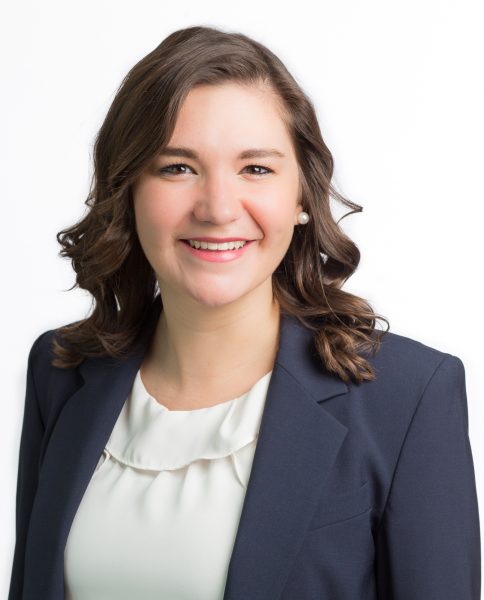 Goulston & Storrs associate Jessica Caamano was connected with Denise* after she attended a Legal Clinic for the Homeless at Pine Street Inn.
Goulston & Storrs associate Jessica Caamano was connected with Denise* after she attended a Legal Clinic for the Homeless at Pine Street Inn.
Denise was homeless and living at Pine Street. She suffers from chronic physical disabilities that prevent her from obtaining full-time work, and had previously lived for many years in Section 8 housing with her adult son. In recent months, her son had stopped paying rent or contributing to the household. Denise struggled to cover the rent on her own and eventually received an eviction notice. She was under the impression that, due to the notice, she was no longer expected to pay her rent, which ultimately caused her landlord to file an eviction action in court.
Due to a series of misunderstandings, Denise never attended the summary process hearing, resulting in a default eviction and the loss of her Section 8 housing voucher. She then moved to Pine Street, where the instability of shelter living exacerbated her physical disabilities.
Jessica worked with Denise to document the events leading up to Denise’s eviction. She also spoke with people from area housing advocacy organizations who had worked with Denise during the eviction process, and recruited some of them to write letters of support and letters outlining the miscommunications that led to Denise missing the summary process hearing.
At Denise’s hearing for reinstatement of her housing voucher, Jessica presented the hearing officer with the facts explaining Denise’s particular situation and the reasons why such circumstances would not repeat in the future, as supported by the letters from area housing advocacy organizations. Jessica also emphasized that Denise now better understands the parameters of her housing voucher, and would be sure not to violate its terms if the Section 8 voucher was reinstated.
The hearing officer agreed to reinstate Denise’s voucher on the condition that she pay arrears to her former landlord. Denise had been saving money from a part-time job and was recently able to settle her debt. She expects to have her voucher reinstated soon and looks forward to moving out of the shelter and into a small apartment.
*Client’s name has been changed to protect privacy.
January 2018
“Pro bono is such an important part of any legal practitioner’s career. As lawyers, we must strive to serve the interests of justice, which cannot be done without improving access to justice for all. We have a duty as professionals and as people to use our skills to help others advocate for themselves.” – Lillian Maguire, Associate, Ropes & Gray
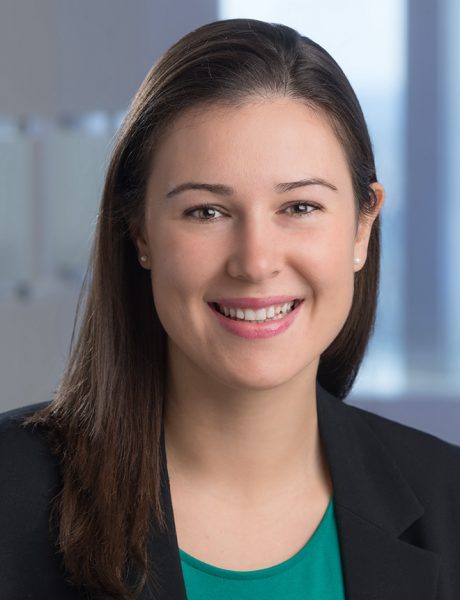 Ropes & Gray associate Lillian Maguire was volunteering at the Clearinghouse’s Legal Clinic for the Homeless when Clinic Director Mia Friedman asked if anyone would be interested in helping a client with a housing case that was going to court the following week. Despite the short notice, Lillian jumped at the opportunity.
Ropes & Gray associate Lillian Maguire was volunteering at the Clearinghouse’s Legal Clinic for the Homeless when Clinic Director Mia Friedman asked if anyone would be interested in helping a client with a housing case that was going to court the following week. Despite the short notice, Lillian jumped at the opportunity.
The client, Linda*, was due in court after receiving an eviction notice from her landlord. She had been living in the same apartment for over a decade and was a model tenant until her business started to fail and she became unable to work due to medical problems. By mid-2015, she could no longer afford her rent. Her landlord agreed to a payment plan, but Linda found herself falling further and further behind while also facing ongoing health issues requiring multiple surgeries. Despite her inability to pay, her landlord allowed her to stay in the unit even as the amount she owed kept increasing.
By the time the landlord served Linda with an eviction notice, she owed several thousand dollars in back rent. She told Lillian she knew she had to move out, but did not have the ability to pay the amount owed.
Lillian and her colleague, Ropes & Gray associate Marc Migliazzo, accompanied Linda to court. Marc suggested they ask the landlord to waive the back rent in exchange for Linda vacating the unit voluntarily. Lillian and Marc also knew that if the case proceeded to trial, the landlord would probably not have been awarded all of the back rent because of the poor conditions in Linda’s unit. In the interest of avoiding a trial and prolonging the loss of additional rental income, the landlord came to an agreement with Lillian and Marc.
Thanks to Lillian and Marc, Linda’s debt was completely forgiven. She plans to move soon and looks forward to getting back on her feet. Linda was extremely grateful and wrote a note to Lillian expressing her gratitude for all the help during a very difficult time.
*Client’s name has been changed to protect privacy.
December 2017
“As a lawyer you have to ask yourself as often as you can: ‘Have I done enough? Am I doing enough to help the people around me?’ That’s the reason why a lot of us went to law school, and pro bono is a great opportunity to have a concrete impact.” – Vanessa Arslanian, Associate, Choate Hall & Stewart LLP
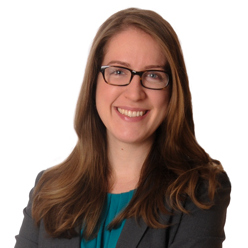 Choate Hall & Stewart Associate Vanessa Arslanian was first connected with Raymond* in 2014 after he attended a Legal Clinic for the Homeless.
Choate Hall & Stewart Associate Vanessa Arslanian was first connected with Raymond* in 2014 after he attended a Legal Clinic for the Homeless.
Raymond was seeking help with his food stamp benefits. He had been receiving monthly food stamp payments in Massachusetts when someone stole his Social Security number and used it to acquire food stamps in Florida. Because of the subsequent duplicate payments, the Massachusetts Department of Transitional Assistance (DTA) concluded that it had overpaid Raymond and elected to start recouping a significant portion of his monthly benefits.
Raymond had previously overcome homelessness, but his food stamps were critical to helping him stay on his feet. His attempts to appeal the DTA’s decision prior to attending the legal clinic were unsuccessful, and while the financial value of his food stamps was crucial, Raymond also felt he had been wrongly accused of fraud and punished for something he didn’t do.
Vanessa spent the next two years communicating with the DTA and the Florida Department of Children and Families, piecing together what evidence the DTA had to support its allegation that Raymond had committed fraud.
Vanessa argued to the DTA that it lacked evidence to support the allegation of fraud and outlined inconsistencies in the DTA’s actions. At a subsequent hearing to decide a narrow benefits calculation issue, Vanessa was able to persuade the hearing officer to allow Raymond to explain his side of the story on the record and to hear her legal argument on why the DTA should stop recouping Raymond’s benefits. Despite hearing Raymond’s testimony, they received an adverse decision and filed an appeal in Superior Court. The DTA then reached out to Vanessa and agreed to negotiate a settlement, limiting the recoupment period to four months instead of the original three years.
Raymond was satisfied with this outcome. Since then, he has been receiving his full benefits and is happy to no longer have the issue hanging over him.
*Client’s name has been changed to protect privacy.
November 2017
“I think [pro bono] is something that we’re supposed to be doing. Part of the reason a lot of us became lawyers is to be advocates for justice, and the best way to do that is to use your skills to advocate for an individual in need.” – Peter Bilowz, Counsel, Goulston & Storrs PC
 Peter Bilowz, Counsel at Goulston & Storrs, first met Ramón* at a Legal Clinic for the Homeless at St. Francis House.
Peter Bilowz, Counsel at Goulston & Storrs, first met Ramón* at a Legal Clinic for the Homeless at St. Francis House.
Ramón was seeking help acquiring Social Security Disability Insurance (SSDI). He had applied previously, but his application was denied and his request for reconsideration was also unsuccessful. He was living in a rehabilitation home and was unable to work due to psychological disabilities.
Pete represented Ramón before an administrative law judge, where he presented the judge with a comprehensive medical history, as well as letters of support from Ramón’s doctors and his caseworker at St. Francis House. Ramón’s caseworker also appeared at the hearing and provided testimony outlining Ramón’s efforts to obtain employment, including enlisting in St. Francis House’s job training program. Despite his best efforts, Ramón faced difficulty in the program due to his condition.
Following the hearing, the judge agreed to approve Ramón’s request for SSDI. Ramón was awarded a significant back payment, as well as monthly payments going forward. He is very excited to finally have a regular income so he can more easily support himself.
*Client’s name has been changed to protect privacy.
October 2017
“I think we all have an obligation to give back with our skills, our time, and our resources. This is a skill I have and I definitely want to use it for good. Pro bono is very close to my heart and important to me, and I think it makes me a better lawyer.” – Danitra Spencer, Employment Counsel, Boston Scientific
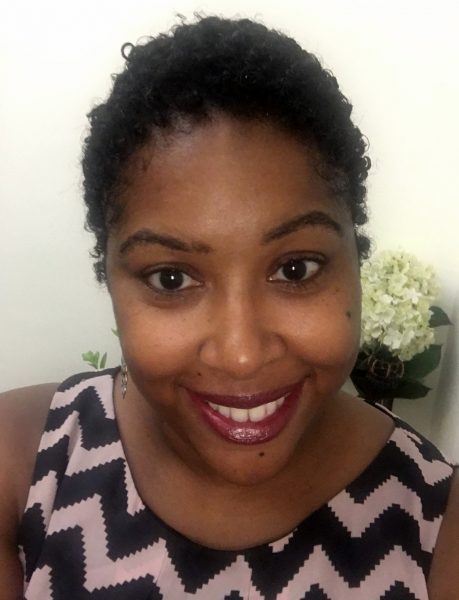 Attorney Danitra Spencer, Employment Counsel at Boston Scientific, was first connected with her nonprofit client, a foundation dedicated to funding cancer research, through the Clearinghouse’s Legal Referral Program.
Attorney Danitra Spencer, Employment Counsel at Boston Scientific, was first connected with her nonprofit client, a foundation dedicated to funding cancer research, through the Clearinghouse’s Legal Referral Program.
The foundation was seeking assistance creating a formal employee handbook and, as a member of Boston Scientific’s Employment Law Group, Danitra felt the project was a great fit for her.
Over the next couple months, Danitra worked closely with a key member of the executive team to learn more about the foundation’s unique needs. They discussed the relevant employment laws and decided how to best apply them in order to protect both the foundation and its employees, while also remaining in line with the foundation’s mission and culture.
The final result was a comprehensive document outlining organizational policies related to promotions, payroll, harassment, accommodation for disabilities, and more. The foundation was pleased to have an official handbook in place, enabling them to more effectively and transparently support their employees.
September 2017
“With this training and consultation program, the attorneys were in and out within the morning, and the nonprofits had an actual deliverable to take home with them. It didn’t require any ongoing work, so it was a quick and manageable way to give back and get hands-on experience working with the clients themselves. The entire experience was very rewarding.” – Kimberly Harding, Senior Associate, Nixon Peabody
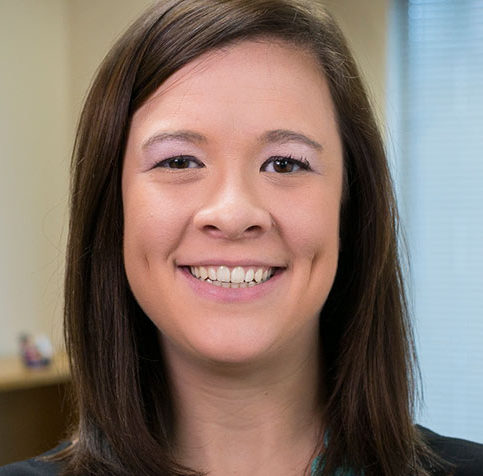
On May 5, Lawyers Clearinghouse teamed up with Nixon Peabody’s Boston office to host a pro bono consultation for local nonprofits seeking assistance creating or updating their social media policies. The program was staffed pro bono with attorneys from Boston Scientific, Choate Hall & Stewart, General Electric, Hirsch Roberts Weinstein, and Nixon Peabody. Kim Harding, a senior associate in Nixon’s Rochester, New York office, flew in that morning to lead a training session for the attorneys in attendance.
Following the training, each nonprofit was paired with a team of the attorneys, who consulted with them about their unique needs. The attorneys then helped the nonprofit clients craft social media policies that were not only compliant with certain employment laws, but also tailored to each individual organization, outlining how their employees should conduct themselves online in order to safeguard themselves and their employer.
As a member of Nixon Peabody’s Labor & Employment group, Kim works regularly with for-profit employers facing a variety of labor and employment issues. She says although nonprofits are tax-exempt, they are not immune from employment issues or employment liability. And because nonprofits often have limited resources, such as small HR departments (if any) and small budgets, they may not be equipped to handle matters as easily as for-profit businesses.
Kim appreciated the opportunity to leverage her expertise to serve an audience she doesn’t always have an opportunity to assist. Meanwhile, the program was rated highly by both pro bono attorneys and the nonprofit clients, who felt the legal guidance strengthened their organizations and left them better equipped to deal with any future social media issues.
The Clearinghouse’s next consultation program, regarding commercial leases for nonprofits, will be held at DLA Piper’s Boston office on October 26. Learn more here.
August 2017
“The ten months that I spent working with and getting to know my two clients, David* and Sean*, were truly my pleasure; I am just so happy that they were able to get favorable results (and that they still keep in touch with me!). Their cases have been among the most rewarding parts of my first year as an associate at Ropes and I am grateful to know both of them.” – Jordan Marciello, Associate, Ropes & Gray
 Ropes & Gray Associate Jordan Marciello first met David* and Sean* at a Legal Clinic for the Homeless at St. Francis House.
Ropes & Gray Associate Jordan Marciello first met David* and Sean* at a Legal Clinic for the Homeless at St. Francis House.
David was homeless and living at a shelter run by the YMCA. He was seeking help sealing his criminal record, which contained a lot of old cases and was making it difficult for him to apply for jobs or acquire permanent housing. Jordan represented David in front of two different judges, one in Boston Municipal Court and one in the Quincy District Court, who both agreed he was entitled to have entries on his record sealed.
David is now applying for better jobs and hopes to move out of the shelter once he finds stable employment.
Sean was also homeless and was living at St. Francis House. He had been forced to quit his manual labor job due to a health issue that was affecting his motor skills. He was receiving monthly state benefits, but was only left with $90 each month after paying child support.
Jordan helped Sean obtain SSI benefits. He was granted a retroactive payment in addition to a benefit of almost $800 a month. Now he is able to pay his child support obligation and still have some money to live. Sean used some of his first check to buy himself a new comforter, and he hopes to move out of the shelter soon.
*Clients’ names have been changed to protect privacy.
July 2017
“Pro bono is a great way to broaden your views on a lot of things. It’s a wonderful opportunity to meet people you might not have met, and also to have a meaningful impact on someone’s life. As a young associate it was also a great opportunity to argue in a hearing, because it was something I’d never done before.” – Darlena Subashi, Associate, Ropes & Gray
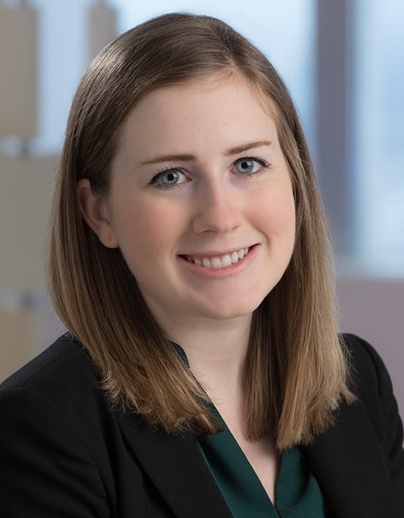 Ropes & Gray Associate Darlena Subashi first met Andrew* at a Legal Clinic for the Homeless at MBHP.
Ropes & Gray Associate Darlena Subashi first met Andrew* at a Legal Clinic for the Homeless at MBHP.
Because of issues with his landlord, Andrew was seeking legal assistance transferring his Section 8 housing voucher to a new apartment. A while later, Darlena was working on Andrew’s transfer paperwork when he told her he had received a notice of proposed termination of his housing voucher from the Boston Housing Authority, due to perceived criminal activity related to an incident with one of his friends.
Andrew told Darlena he had already filed an appeal seeking an informal hearing, and she and her colleague, Mitch Stromberg, agreed to represent him. At the hearing, they showed the hearing officer a video of Andrew’s friend, who claimed the incident had been a prank and that the two men had a history of pranking one another. Andrew also spoke about how he had been able improve his life in the six years he had been housed and off the streets.
Shortly after the hearing, Andrew received a formal notice that his housing would not be terminated. The hearing officer agreed that there had been a misunderstanding and that Andrew should not lose his housing voucher. Andrew told Darlena he was very happy and grateful for the outcome and reiterated how meaningful his housing was to him.
*Client’s name has been changed to protect privacy.
June 2017
“It’s easy to not be so aware of the need that’s out there, so it’s important to me to be able to give back to people who have a sometimes desperate need for help and have no place else to turn. [Pro bono] is also extremely gratifying. As a private attorney working for clients, you charge them a fee and get paid and hopefully everyone is satisfied. This is a different level of satisfaction, and I’m very grateful for these opportunities.” – Jon Rockwood, Senior Contracts Manager, Liberty Mutual
 Jon Rockwood, a Senior Contracts Manager at Liberty Mutual, was first connected with Kevin* following a Legal Clinic for the Homeless at the Pine Street Inn.
Jon Rockwood, a Senior Contracts Manager at Liberty Mutual, was first connected with Kevin* following a Legal Clinic for the Homeless at the Pine Street Inn.
Kevin was seeking help with his estate plan, because he had a modest life insurance policy and wanted to ensure the money went to his grandchildren in the event of his passing. He was especially insistent because neither of his parents had made an estate plan, which contributed in part to the loss of the family’s home after they died.
Over the next couple months, Kevin and Jon met multiple times at Pine Street. They drafted a will for Kevin and a durable power of attorney for one of his close friends, who will be able to access and distribute funds on Kevin’s behalf.
Jon says it’s great to see Kevin planning ahead, and Kevin is happy to have his affairs in order and to be able to provide something for his grandchildren.
*Client’s name has been changed to protect privacy.
May 2017
“I enjoy getting involved in pro bono work because it gives me an opportunity to provide my services to persons and organizations of limited means. The particular needs of pro bono clients are also interesting and enable me to connect with people professionally who I might not otherwise interact with in the course of my own practice.” – Timothy Maun, Associate, Latham & Watkins LLP
 When a local education nonprofit sought to dissolve their organization, they reached out to the Lawyers Clearinghouse Legal Referral Program. The Clearinghouse connected the group with Latham & Watkins attorney Timothy Maun, who practices in Latham’s Technology Transactions Group.
When a local education nonprofit sought to dissolve their organization, they reached out to the Lawyers Clearinghouse Legal Referral Program. The Clearinghouse connected the group with Latham & Watkins attorney Timothy Maun, who practices in Latham’s Technology Transactions Group.
The organization had built up a large collection of education-related materials, which they wanted to transfer to another local education nonprofit. Tim assisted his client with a purchase agreement, which involved reviewing and negotiating agreement terms, followed by a full transfer of intellectual property (IP).
The IP transfer enabled the second organization to successfully carry on the important work previously done by Tim’s client, who will move forward with the formal dissolution process with legal guidance from Tim’s colleague, Latham Associate Jonathan Ellis.
Tim would like to thank his colleagues Abigail Prague and Gloria Mak, members of the Latham & Watkins Pro Bono Committee, for their support throughout this case.
April 2017
“One of the great things about doing pro bono work is that it gives you substantive experience that you might not otherwise get. I’m not a litigator, but I was able to work with litigators from our office, attend hearings, and write a brief. It’s something that I really enjoyed, because it got me out of my comfort zone.” – Chelsea Johnson, Associate, Goulston & Storrs
 Goulston & Storrs attorney Chelsea Johnson first met Laura* at a Legal Clinic for the Homeless at Pine Street Inn.
Goulston & Storrs attorney Chelsea Johnson first met Laura* at a Legal Clinic for the Homeless at Pine Street Inn.
Laura needed help with her application for social security disability benefits. She had applied multiple times, but her application was always rejected due to misconceptions about the impact her mental health issues had on her ability to work. Though Laura presents well and can usually acquire a job, she has difficulties maintaining employment and consistently completing everyday tasks.
Chelsea collaborated with her colleague, Marshall Senterfitt, and with their help, Laura submitted a new application for benefits to the Social Security Administration. When that application was also rejected, Chelsea filed an appeal to go before an administrative judge.
In a brief submitted prior to the hearing, Chelsea successfully argued that Laura’s illness made it impossible for her to keep a job. Shortly after, Laura was approved for benefits and started receiving monthly payments, which will enable her to remain housed and focus on her health.
*Client’s name has been changed to protect privacy.
March 2017
“Pro bono work allowed me to have a real impact on a client’s life right at the beginning of my legal career. CORIs put already vulnerable people at a disadvantage in finding jobs and stable housing. Since these cases were resolved, Stephen has done everything he can to put himself in a position to find a good job and a home. He earned this success, but it was a privilege to help him through this process and to help him on his path to independence.” – Harry Hanson, Associate, WilmerHale
 WilmerHale associate Harry Hanson first met Stephen* in October 2016 through the Lawyers Clearinghouse’s Legal Clinic for the Homeless. At the time, Stephen was working nearly full-time and pursuing his high school degree, all while living in an emergency shelter. Stephen had charges on his criminal record, or CORI, and even though the charges had been dismissed, Stephen knew that they could still affect his ability to find housing and a good-paying job. He came to the clinic for help sealing his CORI.
WilmerHale associate Harry Hanson first met Stephen* in October 2016 through the Lawyers Clearinghouse’s Legal Clinic for the Homeless. At the time, Stephen was working nearly full-time and pursuing his high school degree, all while living in an emergency shelter. Stephen had charges on his criminal record, or CORI, and even though the charges had been dismissed, Stephen knew that they could still affect his ability to find housing and a good-paying job. He came to the clinic for help sealing his CORI.
Harry worked with Stephen to prepare an affidavit, secure letters of support, and gather school records and other documents to include with Stephen’s petition to seal. The petition, filed in Boston Municipal Court, explained how Stephen’s CORI put him at a disadvantage in applying for subsidized housing and competitive employment. It also highlighted Stephen’s hard work since these cases were resolved; Stephen’s boss and his school principal submitted letters touting his positive attitude and perseverance.
In January 2017, Harry represented Stephen at a hearing in Boston Municipal Court. An Assistant District Attorney opposed the petition, arguing that the records should remain available to the public, and Harry countered, arguing that the disadvantages to Stephen outweighed the public’s interest in access to these records. After reviewing the written submissions and hearing argument, the court allowed Stephen’s petition. With these records sealed, Stephen plans to continue his education, and hopes to move into his own home soon.
*Client’s name has been changed to protect privacy.
February 2017
“My practice, although focused on affordable housing and community development, involves project financing and development. In contrast, the Legal Clinic provides the opportunity to work directly with individuals in need. That personal connection is very rewarding and is a powerful reminder of why we do what we do.” – Stephen Nolan, Partner, Nolan Sheehan Patten
 Attorney Steve Nolan, a Partner at Nolan Sheehan Patten, met Brian*, an elderly homeless man, in 2016 while volunteering with the Massachusetts Legal Clinic for the Homeless.
Attorney Steve Nolan, a Partner at Nolan Sheehan Patten, met Brian*, an elderly homeless man, in 2016 while volunteering with the Massachusetts Legal Clinic for the Homeless.
Brian was living in Long Island Shelter after financial hardship left him unable to pay his rent in full for a number of months, resulting in eviction and a judgment for unpaid rent. He had recently applied for subsidized housing through the Boston Housing Authority (BHA), but his application had been rejected due to his eviction record, which the BHA believed showed an inability or unwillingness to comply with terms of his lease.
Nolan Sheehan Patten helped Brian set up a payment plan to resolve his outstanding debt. Steve then assisted Brian with his appeal of BHA’s denial of housing. In the meantime, he encouraged Brian to apply for housing through other sources, including the Metropolitan Boston Housing Partnership (MBHP).
The BHA ultimately denied Brian’s appeal, but because Brian had settled his debt with his former landlord, he was able to secure affordable housing through MBHP and is now housed.
*Client’s name has been changed to protect privacy.
January 2017
“Everyone should be able to access justice, irrespective of economic status. Pro bono work is part of our contribution and obligation to the community to make sure that our most vulnerable members can have their voices heard.” – Genevieve Aguilar Reardon, Associate, Choate Hall & Stewart
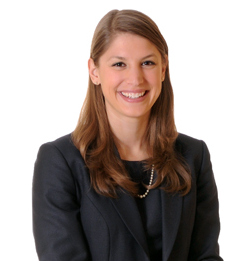
Genevieve Aguilar Reardon, an associate at Choate Hall & Stewart, first met Miguel* at a Legal Clinic for the Homeless at Pine Street Inn.
Miguel was living in low-income housing and had fallen behind on his rent, causing his landlord to issue an eviction notice. By the time Miguel, an immigrant whose primary language is Portuguese Creole, was able to find someone to translate the notice for him and figure out his next steps, the court date for the eviction hearing had passed. Because he hadn’t shown up in court, his landlord obtained a default judgment that enabled him to move forward with the eviction process.
At the clinic, Miguel told Genevieve he was afraid he was going to be evicted at any moment. He had nowhere to go and shelters around the city were packed due to sub-zero temperatures and an impending snowstorm.
Immediately following the clinic, Genevieve contacted Miguel’s landlord’s attorney and negotiated a payment plan. The landlord also agreed to rescind the eviction notice and withdraw the default judgment. A week later, Genevieve, Miguel, and Katherine Todd (another Choate associate) headed to Housing Court, where a magistrate judge signed off on the new agreement.
Miguel is very happy that he is no longer facing homelessness. He has only one monthly payment left before he completely pays off his debt to his landlord.
Genevieve would like to thank attorneys Dick Bauer, Of Counsel at the Lawyers Clearinghouse, and Eloise Lawrence, of the Harvard Legal Aid Bureau, for their advice and guidance during this case.
*Client’s name has been changed to protect privacy.
December 2016
“I cannot begin to thank you enough for finding Dick for us. To no one’s surprise, he was thoughtful, patient, and a total pleasure to deal with. As a result of his efforts we will now be able to start aggressive fundraising for our work.” – Lynn Girton, Vice-Chair, Commission on the Status of Grandparents Raising Grandchildren
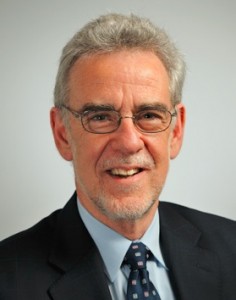 In 2008, the Massachusetts State Legislature created the Commission on the Status of Grandparents Raising Grandchildren. Known as the Grandparents Commission, the group was designed to provide education, resources, and other support to grandparents who were full-time guardians for their grandchildren.
In 2008, the Massachusetts State Legislature created the Commission on the Status of Grandparents Raising Grandchildren. Known as the Grandparents Commission, the group was designed to provide education, resources, and other support to grandparents who were full-time guardians for their grandchildren.
Though the Commission was originally created to be run by volunteers, using funds appropriated by the state government, the Commissioners recently agreed that the group could be more effective if it could fundraise and distribute money to the nearly 40 nonprofits throughout the state that support grandparents and other guardians.
After the Massachusetts Association of Councils on Aging (MCOA) agreed to act as fiscal sponsor for the Commission, Vice-Chair Lynn Girton reached out to the Lawyers Clearinghouse for assistance. She was connected with Dick Allen, a former partner in Casner & Edwards’ Nonprofit Organizations Law Practice who also served as an Access to Justice Fellow.
Dick proceeded to draft a Memorandum of Understanding (MOU) between the Grandparents Commission and the MCOA. The document clarified the expectations of both parties and laid out the guidelines for their partnership, effectively cementing the fiscal sponsorship agreement.
Thanks to Dick, the Grandparents Commission can now receive donations via the MCOA and can in turn support nonprofits around the state.
Dick Allen has been volunteering with the Lawyers Clearinghouse since 2014, when he first signed on as an Access to Justice Fellow. As a Fellow, he helped the Clearinghouse train and mentor new attorneys, assisted Veterans Legal Services with governance matters, and worked on strategic planning with the Massachusetts Law Reform Institute. He and his wife Rosemary, also a former Fellow, continue to volunteer with a number of organizations, and the Clearinghouse would like to thank them for their invaluable work and dedication.
November 2016
“I think that sometimes the rules are stacked against people, and it’s just a matter of untangling the web of requirements to understand what needs to be done. Being able to support somebody in trying to work through that is very rewarding.” – Nora Marantz, Corporate Counsel, Liberty Mutual Legal Department
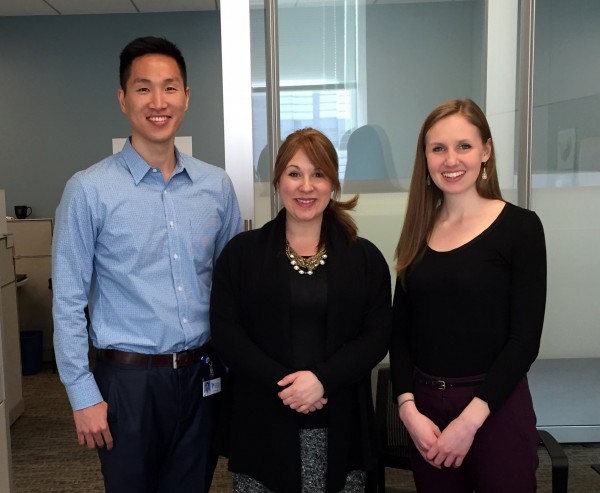
Liberty Mutual attorneys Nora Marantz, Oh Sung Kwon, and Kathleen Brekka first met Jorge* in the summer of 2015 at a Legal Clinic for the Homeless at St. Francis House.
Jorge was living at the Shattuck Shelter in Jamaica Plain and had a job at a local grocery store, but could not afford an apartment of his own. He had previously applied for housing with the Boston Housing Authority (BHA), but his application had been denied after he was unable to provide the BHA with a recommendation from a past landlord.
After some research, and based on Jorge’s specific situation, the Liberty team decided the best course of action would be to file a new application. Nora, Jorge, and a case manager then attended an in-person interview with the BHA, where they were asked to collect more supporting documentation. The team compiled character references from Jorge’s case managers and a member of his church and had Jorge sign an affidavit attesting to his past tenant history.
The BHA approved Jorge’s new application in February 2016 and he was able to move into a one-bedroom apartment that March.
Nora, Oh Sung, and Kathleen extend their thanks to Shirly Ferreras, a legal secretary at Liberty Mutual, for assistance with Spanish language interpretation and translation during their meetings with Jorge, and to Kathleen McGrath, an attorney and pro bono coordinator in the Liberty Mutual Legal Department, for her advice and encouragement.
*Client’s name has been changed to protect privacy.
October 2016
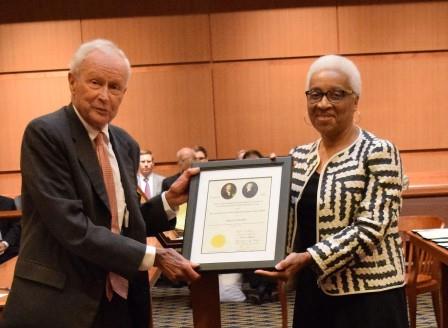
Attorney Bancroft “Bats” Wheeler, a retired partner at Nutter McClennen & Fish and an Access to Justice Fellow, was one of four attorneys honored with a 2016 Adams Pro Bono Publico Award on October 26 at the John Adams Courthouse.
Bats was recognized for the pro bono work he started as a Fellow in 2013 after partnering with MetroWest Legal Services, where he piloted a program, called “Wills on Wheels,” which was designed to provide simple wills, durable powers of attorney, and healthcare proxies to disabled and elderly clients around Massachusetts. During his Fellowship, Bats drafted over 250 legal documents for over 100 MetroWest clients. He continues to volunteer with MetroWest today.
For many years, Bats has used his expertise in the areas of trusts and estates to actively serve his community. In addition to his work through the Fellows Program, he also volunteers with Senior Partners for Justice to work on matters related to the probate aspects of bank foreclosures.
The Adams Pro Bono Publico Awards are presented annually to legal professionals, law firms, government attorney offices, corporate law departments, and other legal institutions that “demonstrate outstanding and exceptional commitment to providing volunteer legal services for the poor and disadvantaged.”
September 2016
“I wouldn’t have this apartment if it wasn’t for all your help, time and dedication. You took time out of your busy schedule to help me and my family.” – Tara, Client, Legal Clinic for the Homeless
 Attorney John Cloherty, a partner at Pierce, Davis & Perritano, was connected with Tara* after she attended a Legal Clinic for the Homeless at the Medeiros Center. Tara and her three sons had been evicted from their subsidized housing the year before and lost their next apartment after the landlord declined to renew the lease. They were staying with a family member, but needed to find a more stable living arrangement with two bedrooms.
Attorney John Cloherty, a partner at Pierce, Davis & Perritano, was connected with Tara* after she attended a Legal Clinic for the Homeless at the Medeiros Center. Tara and her three sons had been evicted from their subsidized housing the year before and lost their next apartment after the landlord declined to renew the lease. They were staying with a family member, but needed to find a more stable living arrangement with two bedrooms.
Tara applied for an apartment at a subsidized housing complex, but was rejected due to her eviction history and an unpaid debt. She already had her hands full as a single mom working multiple jobs, and she was unsure of what to do next.
When Tara found another potential apartment, John and his support staff at Pierce Davis helped her compile the necessary packet of materials, including a financial history showing her past ability to pay rent.
In September 2016, Tara’s application was approved. She and her children are excited to have a place to call their own and thanked John for his assistance.
*Client’s name has been changed to protect privacy.
July 2016
“[Lawyers] have a very specific set of skills and the ability to do things that not everyone can do, including advocating for people who can’t afford attorneys. Pro bono should be a necessary part of most people’s practices . . . it’s a great opportunity to manage a case years before you would do it for another client at the firm, and it allows you to really take the lead and initiative to see something through from start to finish.” – Joey Polonsky, Associate, Choate Hall & Stewart
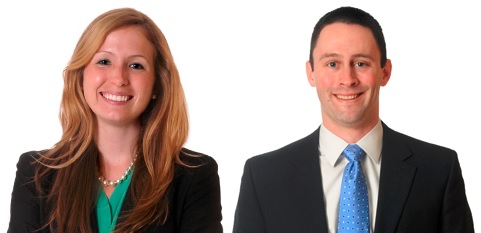 Choate Hall & Stewart attorneys Shaina Wamsley and Joey Polonsky met Robert* in the summer of 2015 while volunteering with the Clearinghouse’s Massachusetts Legal Clinic for the Homeless. Robert needed legal help after the Social Security Administration (SSA) denied his application for disability benefits. He was homeless and had suffered multiple traumatic brain injuries in recent years, which left him struggling significantly in his daily life.
Choate Hall & Stewart attorneys Shaina Wamsley and Joey Polonsky met Robert* in the summer of 2015 while volunteering with the Clearinghouse’s Massachusetts Legal Clinic for the Homeless. Robert needed legal help after the Social Security Administration (SSA) denied his application for disability benefits. He was homeless and had suffered multiple traumatic brain injuries in recent years, which left him struggling significantly in his daily life.
Shaina and Joey represented Robert in appealing the SSA’s decision. Over the course of a year, they collected and analyzed Robert’s medical records and drafted a persuasive memo advocating for him in advance of a June 2016 hearing before an Administrative Law Judge (ALJ).
Shaina and Joey zealously represented Robert’s interests at the hearing, and in July 2016, Robert received a fully favorable decision from the ALJ, reversing the SSA’s denial of benefits. Robert will now receive monthly disability benefits as well as over two years of back pay. These benefits will provide critical support for Robert’s day-to-day needs and will have a significant impact on his ability to secure stable housing.
*Client’s name has been changed to protect privacy.
August 2015
“Yesterday ranks insanely high on my days of professional fulfillment. Had it not been for the clinics you run, I never would have met Aaron, and given the complex nature of his particular case, it is unlikely he would have been granted asylum without some assistance from counsel.” – Jessica Lisak, Senior Associate, WilmerHale
Attorney Jessica Lisak met Aaron* in 2013 while volunteering at the Massachusetts Legal Clinic for the Homeless. Aaron was seeking assistance preparing for his asylum interview and had already been turned away by two other organizations who were unable to help him.
Jessica agreed to take the case, under supervision from a partner and another attorney at the firm. The team spent the next two years compiling affidavits and conducting research to bolster Aaron’s asylum application leading up to a hearing this Spring.
Aaron was granted asylum this August and the team will continue working with him to file applications for his wife and children.
*Client’s name has been changed to protect his privacy.
We would like to extend our gratitude to the many volunteers who make these pro bono victories possible. Thank you for working to promote access to justice for all.
Have you achieved a pro bono victory through one of our programs? Let us know.

